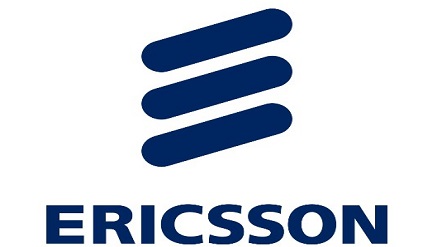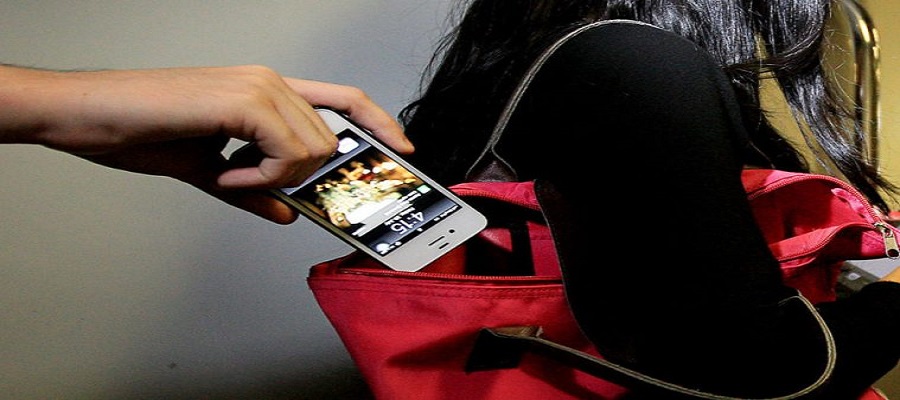Telecom
5G Radio Dot: How Ericsson Gives Big Boost To Indoor Coverage

By peter oluka
With mobile data traffic surging by eight times and 1 billion 5G subscriptions expected by the end of 2023, mobile operators must meet consumer and enterprise demand for applications such as 4K/8K video streaming, virtual reality/augmented reality, and immersive media.
This puts out a strong call for indoor coverage, which cannot be easily addressed by outdoor radio deployments as modern building materials can block outdoor radio signals.
Ericsson is meeting this challenge by introducing the 5G Radio Dot, a small cell radio designed to satisfy the advanced indoor mobile broadband performance requirements demanded by 5G.
Building on the elegant design of previous generations, the 5G Radio Dot takes less than half the time to install compared to other indoor solutions, and will support the new 5G mid-bands (3-6GHz) with speeds up to 2Gbps.
NishantBatra, Head of Product Area Network Infrastructure at Ericsson, says: “Adding small cell solutions to our 5G portfolio is a natural part of the network evolution. Enterprises have been asking for first-rate connectivity indoors, as well as higher speeds and capacity to serve advanced use cases that cannot be addressed by traditional indoor systems. Our 5G portfolio, bolstered by small cells, will enable operators to meet these demands.”
Daryl Schoolar, Practice Leader, Ovum, says: “Now that first 5G standards are here, vendors are going to need multiple radio solutions to help operators roll out their new 5G networks. Ericsson takes an important initial step in this direction by adding indoor small cell 5G solutions to its already existing outdoor 5G RAN portfolio.
“This new indoor solution from Ericsson is going to be attractive for operators wanting to offer enterprises good indoor performance for enhanced mobile broadband and new industrial applications that can’t be met by Wi-Fi or 5G base stations deployed outdoors.”
Deputy Head of China Mobile Research Institute, Huang Yuhong, says: “The Ericsson Radio Dot System is already widely deployed in our 4G networks. As an innovative small cell solution, it further enhances our indoor solutions and will continue to play a key role in the 5G era. We’re happy to see Ericsson evolving the Radio Dot to 5G technology.”
As a natural evolution of the Ericsson Radio Dot System, operators will be able to deploy 5G Radio Dot next to 4G solutions using the same cabling infrastructure, same network architecture and dot locations. This innovative small cell solution provides a simple upgrade path for existing Radio Dot System deployments, adding 5G technology capabilities. It is easy to add frequency, capacity, and technologies.
Feng Yi, Director of Wireless Technology Department, China Unicom Network Technology Research Institute, says: “Our users enjoy excellent indoor coverage in thousands of buildings in China, including shopping malls, thanks to Ericsson Radio Dot solution. As a scalable system, it enables us to meet the growing demand for seamless indoor connectivity. It is great to see Ericsson evolve the solution to 5G as we prepare for the next-generation mobile technology.”
The Radio Dot System has been successfully deployed for many indoor applications used in large areas such as office buildings, shopping malls, hospitals, and airports. Over time, the small cell solution will also support 5G industrial applications from connected factories to more extreme cases such as connected mining. Ericsson is a pioneer on this front. Its collaboration with Boliden shows how Radio Dot technology can improve safety and efficiency through the remote control of machines that keep people out of the most dangerous areas of the mine at the most dangerous times.
The 5G Radio Dot will undergo trials in late 2018 and will be commercially available in 2019.
Meanwhile, recent Ericsson ConsumerLab reports, show 60 percent of mobile subscribers are unhappy with their indoor cellular connectivity.
In January 2018 report, smartphone users rate better indoor and outdoor coverage among the top expectations from 5G
Telecom
NCC Asks Consumers to Monitor Data Usage to Authenticate Consumption

Nigerian Communications Commission (NCC) has charged the over 174 million telecoms subscribers in the country to constantly monitor their data usage to authenticate their consumption level.

This follows concerns being raised by telecoms consumers about the rapidity of data depletion on their devices.
The Commission particularly enjoined the consumers to always contact their service providers to make requests for cases of discrepancies noted in their data usage.
While the consumers are expected to contact their service providers to request for their usage history/statement where inconsistency exists in their data usage as first step, the Commission said they may also escalate such issues to the Commission through its toll-free Number 622 and social media platforms, especially if their requests are not satisfactorily handled.
The Commission, which also made some clarifications regarding the concerns being raised by the consumers around data usage, said the need to inform the consumers on their concerns is part of its commitment to protect and appropriately inform and educate the telecom consumer on industry issues.
Making further clarifications around data speed and usage, the Commission said data speed is the speed at which data is transferred between two devices, measured in megabits per second (Mbps or mbps), stressing that given the spread of Internet services and the immense investment in the sector, data rates have continued to increase and users may be unaware of how to measure data speed.
The telecoms regulator explained further that websites such as www.fast.com also provide an easy way for consumers to measure Internet speed on any device at any location.
“The higher the data speed, the quicker pages load-downloads and uploads-occur and expectedly, the quicker data bundles are exhausted. So, as telecom consumers are able to do more on devices in less time, some consumers’ devices & network service providers make it possible to limit data speed to help users manage data usage better.
“In any case, most devices now include functions to measure data used by devices and it is imperative that users monitor same to authenticate data usage, such as applications left running on devices. Therefore, where discrepancies occur users may contact their service provider to request for their usage history/statement. If request is not dealt with satisfactorily then, users can contact NCC by calling 622 or engage the Commission via its social media platforms”.
It added that the data usage experience is a function of location, network equipment and users connected in a particular location.
Telecom
Phone Theft: AMCODET Urges Mandatory Registration @ Point of Purchase

Association of Mobile Communication Device Technicians of Nigeria (AMCODET), has called on the Nigerian Communications Commission (NCC) to make it mandatory for mobile phones to be registered at the point of purchase.

According to Kehinde Apara, president of AMCODET, implementing this registration process would significantly help in combating phone theft and assist in locating stolen devices.
Apara, made this appeal in an interview in Lagos on Monday.
He stated, “Registration of mobile phones will reduce theft to the barest minimum, as it will be difficult for thieves to sell registered stolen phones.”
Apara explained that the registration of new phones would also help to reduce the harassment faced by technicians by security agencies.
“So many of our members have been labelled accomplices in theft cases, because customers bring stolen phones to them to repair. We believe this is unfair to such innocent people,” he said.
He went on to highlight that the NIN-SIM linkage, which was originally an idea brought forward by AMCODET, was created to curb insecurity and theft.
However, Apara pointed out that “It is not enough.”
He stressed the need for further measures to ensure the proper registration of mobile phones, emphasising that such a step would make it easier for technicians to identify stolen devices brought in for repair or flashing.
“AMCODET has been at the forefront of organising seminars on the security of mobile phones and has also been sensitising the public and authorities on the challenges faced by the association due to phone theft. There is no way our members can identify if a phone is stolen when brought to them for repairs or flashing, but if the phone is registered, the technician can more easily identify it,” he explained.
Apara also expressed a desire for closer collaboration with security agencies, saying, “We want to work with security agencies to ensure that phones are properly registered, theft is prevented, and thieves are brought to book.”
In additin to the call for phone registration, Apara appealed to individuals and the private sector to support efforts to develop the mobile phone industry in Nigeria.
He remarked, “We need individuals’ support to develop our industry, rather than relying on government for everything.”
He emphasised that Nigeria has the capacity to develop its own technology and reduce reliance on imported devices, “With the support of individuals and the private sector, Nigerians can begin to develop its own technology, rather than relying on imported technology.”
Apara expressed optimism for the future of the mobile phone industry in Nigeria, believing that with the right support, the country could build its own technological solutions and move towards greater self-reliance.
“We can develop our own technology.”
“But we need the support of individuals and organisations to make it happen,” he said.
Credit: NAN
Telecom
Apple Faces €150M Fine in France Over Alleged Antitrust Violations

French antitrust regulators have fined Apple 150 million euros ($162 million) over its App Tracking Transparency (ATT) feature, which is facing scrutiny in multiple European countries.

The French Competition Authority ruled that Apple’s implementation of ATT was “neither necessary nor proportionate to the company’s stated goal to protect user data” and unfairly penalized third-party publishers.
Alongside the financial penalty, Apple has been ordered to publish the decision on its website for seven days. The ruling comes amid ongoing investigations in Germany, Italy, Romania, and Poland into ATT, which Apple introduced in 2021 as a privacy safeguard.
ATT requires apps to obtain explicit user consent via a pop-up before tracking activity across other apps and websites. If users decline, the app loses access to their advertising identifier, limiting targeted advertising. Critics argue that the system disproportionately benefits Apple by restricting competitors while promoting its own advertising services.
The French watchdog found that ATT forces users to navigate excessive consent windows for third-party apps on iPhones and iPads, making the process unnecessarily complicated.
Additionally, Apple’s system requires users to opt out of ad tracking twice rather than once, which the authority said undermines the feature’s neutrality and causes economic harm to app publishers and ad service providers.
The ruling emphasized that smaller publishers, which rely heavily on third-party data collection for revenue, are particularly affected.
The French regulator initially declined to impose emergency measures in 2021 after complaints from the advertising industry, but continued its investigation, ultimately leading to Monday’s decision.

 Telecom2 days ago
Telecom2 days agoMTN, Lynk Global Make Africa’s First Satellite-to-Mobile Call

 E-Business2 days ago
E-Business2 days agoSystemSpecs’s Subsidiary Deelaa Becomes Whatadeal

 E-Financial2 days ago
E-Financial2 days agoNigeria Gets Fresh $500m World Bank Loan for Economic Stimulus Programme

 General News2 days ago
General News2 days agoSERAP Asks National Assembly to Drop Bill to Jail Nigerians who Fail to Vote

 E-Financial2 days ago
E-Financial2 days agoUninsured Depositors of Heritage Bank to Receive Liquidation Dividends In April – NDIC

 Telecom2 days ago
Telecom2 days agoSmart Treasure Investment Team’s Initiatives Eradicate Poverty, Says Aminu

 E-Business2 days ago
E-Business2 days agoCybersecurity Firm Says It’s Time to Back it Up, As the World Marks World Backup Day

 Telecom2 days ago
Telecom2 days ago15-Year-Old Autistic Artist, Kanye, to Unveil World’s Largest Art Canvas on Autism Awareness Day



























